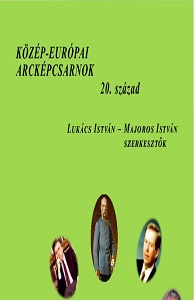Egy közép–európai sors
A Central European Fate
– One for All and All for One –
Author(s): Károly Szerencsés
Subject(s): Cultural history, Diplomatic history, Political history, Interwar Period (1920 - 1939), WW II and following years (1940 - 1949), Post-War period (1950 - 1989)
Published by: Eötvös Loránd Tudományegyetem, Új-és Jelenkori Egyetemes Történeti Tanszék
Keywords: United States of Europe; neutrality; national democracy; christian ethics; social justice; political emigration; sovereignty;
Summary/Abstract: A Hungarian fate, a life path, in which dwell almost all the Hungarian polit-ical, social and public impasses of the larger part of the 20th century. Dezső Sulyok’s (1897–1965) life well represents the path of the genera-tion, which had to fight through both of the world wars, experiencing the defeat and dissection of its homeland, along with the humiliation of its na-tion. Sulyok had to fight for democracy, freedom, Christian ethics, social justice in not only one, but two historical eras, only to find himself fail in both of these struggles. Not because of the lack of his abilities or respon-siveness of the Hungarian nation, but primarily because of the interna-tional circumstances. In the middle of the century, between the crushing wills of National socialism and Bolshevik communism, under the pressure of 2 superpowers – the Third (German) Reich’s and the Soviet Union – the struggle for national independence and freedom failed in Hungary. Dezső Sulyok still in time – meaning early – suggested the necessity of Hungary’s neutrality, and the idea of a United States of Europe, which would have been based on the cooperation of nations, and he could even imagine the creation of a World state. At the same time Sulyok was strongly committed to the cooperation of central-European nations, but not on the false grounds of Versailles. In the end, fate had a long emigra-tion in mind for Sulyok, just like for many other democrats and patriots in Central-Europe. Even though he could never return to his – sovietised – homeland, his idea of national democracy did not fade away.
Book: Közép-európai arcképcsarnok. 20. század
- Page Range: 375-390
- Page Count: 16
- Publication Year: 2018
- Language: Hungarian
- Content File-PDF

